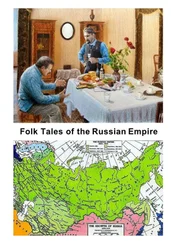Коллектив авторов - Tales from the German, Comprising specimens from the most celebrated authors
Здесь есть возможность читать онлайн «Коллектив авторов - Tales from the German, Comprising specimens from the most celebrated authors» — ознакомительный отрывок электронной книги совершенно бесплатно, а после прочтения отрывка купить полную версию. В некоторых случаях можно слушать аудио, скачать через торрент в формате fb2 и присутствует краткое содержание. Жанр: literature_18, foreign_antique, foreign_prose, Сказка, на английском языке. Описание произведения, (предисловие) а так же отзывы посетителей доступны на портале библиотеки ЛибКат.
- Название:Tales from the German, Comprising specimens from the most celebrated authors
- Автор:
- Жанр:
- Год:неизвестен
- ISBN:нет данных
- Рейтинг книги:4 / 5. Голосов: 1
-
Избранное:Добавить в избранное
- Отзывы:
-
Ваша оценка:
- 80
- 1
- 2
- 3
- 4
- 5
Tales from the German, Comprising specimens from the most celebrated authors: краткое содержание, описание и аннотация
Предлагаем к чтению аннотацию, описание, краткое содержание или предисловие (зависит от того, что написал сам автор книги «Tales from the German, Comprising specimens from the most celebrated authors»). Если вы не нашли необходимую информацию о книге — напишите в комментариях, мы постараемся отыскать её.
Tales from the German, Comprising specimens from the most celebrated authors — читать онлайн ознакомительный отрывок
Ниже представлен текст книги, разбитый по страницам. Система сохранения места последней прочитанной страницы, позволяет с удобством читать онлайн бесплатно книгу «Tales from the German, Comprising specimens from the most celebrated authors», без необходимости каждый раз заново искать на чём Вы остановились. Поставьте закладку, и сможете в любой момент перейти на страницу, на которой закончили чтение.
Интервал:
Закладка:
During this discourse, a cloud gathered on the serene brow of the fair Libussa, a manly earnestness shone from her eyes, and those around became all ear, that they might hear her decision, which was as follows: "Thy cause is plain and right; no violence shall pervert its justice. A firm dam shall set a proper limit and measure to the wild stream, that it may not flow beyond; and I, with its fishes, will make thee a seven-fold compensation for the depredation of its waters." She then made a sign for the eldest of the deputation to speak; and, turning his head to the court, he said thus: "Wise daughter of the renowned Crocus, tell us to whom belongs the seed of the field – to the sower, who has buried it in the earth, that it may spring up and multiply, or to the hurricane who hurls it down, and scatters it?" – "To the sower," she replied. "Then," said the speaker, "give orders to the hurricane, that it may not select our fields as the spot for its wantonness, trample down our grain, and shake our fruit-trees." —
"So be it," said the duchess; "I will tame the hurricane, and banish it from your fields. It shall fight with the clouds, and scatter them, when they rise from the earth, threatening the land with hail and heavy storms."
Prince Wladomir and the knight Mizisla were both present at the general court. When they heard the complaint that had been made, and heard the solemn sentence of the princess, they grew pale, and smothering their wrath fixed their eyes upon the ground, not daring to own to themselves how much they were galled at being condemned by the sentence from the mouth of a woman. For although to shield their honour, the complainants had modestly hung an allegoric veil over their accusation, and even the just decision of the sovereign judge had shown a prudent respect for this covering, the web was, notwithstanding, so fine and transparent, that whoever had eyes could see what stood behind it. As they did not venture to appeal from the throne of the princess to the people, the judgment just given against them having caused general exultation, they could only submit with it, although most unwillingly. Wladomir made seven-fold reparation to his neighbour the settler, for the injury that had been done, and Nimrod Mizisla was obliged to pledge his knightly word that he would not select his subject's corn fields as a place for hare-hunting. At the same time Libussa gave them a glorious employment, that they might exercise their activity, and restore the tone of knightly virtue to their name, which now sounded discordantly like a cracked vessel. She placed both at the head of her army, which she sent out against Zornebock, prince of the Salians, a giant, and moreover a powerful sorcerer, who was then about making war against Bohemia, and imposed upon them as a penance, the condition that they should not return to their court, until one brought the plume and the other the golden spurs of the monster as a trophy of victory.
The unfading rose still preserved its magic power during this expedition, rendering Prince Wladomir as invulnerable to mortal weapons, as Achilles the hero, and as nimble and active as Achilles the swift-footed. The armies met on the northern border of the territory, and the signal to fight was given. The Bohemian heroes flew through the opposing forces like storm and whirlwind, and mowed down the thick crop of lances, as the reaper's sickle mows down a field of wheat. Zornebock fell a victim to their mighty sword-cuts; they returned back to Vizegrad in triumph with the booty they had acquired, and the spots and soils which had before tainted their knightly virtue, they had washed out in the blood of the enemy. The Duchess Libussa rewarded them with all the distinctions of princely favour, dismissed them, when the army was disbanded to their own residence, and as a new mark of her esteem gave them a ruddy apple from her own garden for a keepsake, with the instructions that they were to share it peaceably without cutting it. They went their way, placed the apple on a shield, and had it carried before them, while they consulted together how they should set about making division with proper discretion, so that they might not be mistaken in their gentle sovereign's meaning.
Before they reached the crossway that was to separate them, so that each might follow the road that led to his own residence, they adhered to the treaty of partition amicably enough, but now the point was who should keep the apple, to which they both had equal right. Only one, it was evident, could retain it, and both promised themselves such wonders that each longed to possess it. Upon this they quarrelled, and the sword nearly had to decide to whom the fortune of arms had assigned the indivisible apple. A shepherd, however, happened to be driving his flock along the same road, so they chose him for their umpire, and laid their case before him, probably because the three celebrated goddesses had applied to a shepherd to settle their affair about an apple. The man reflected a little, and said,
"In this present of an apple lies a deeply hidden signification; yet who can probe it but the wise maiden who has there concealed it? I suspect that the apple is a deceitful fruit, which grew upon the tree of discord, and the red skin of which signifies bloody contentions among you, knights, – that one shall irritate the other, and that neither shall reap any joy from the gift. For tell me how is it possible to share an apple without dividing it?" The two knights took to heart the shepherd's advice, which they thought contained great wisdom. "Thou art right," said they, "has not the base apple already kindled anger and quarrel between us? Were we not on the point of fighting for the deceptive gift of the proud maiden who hates us both? Did she not place us at the head of her army, because she thought we should be killed? And because that method did not succeed, she now arms us with the knife of discord against each other. We declare ourselves free from the deceitful gift; neither of us shall bear the apple, but it shall be the reward of thy honest decision. The fruit of the law-suit belongs to the judge, and the parings to the contending parties."
The knights then went their way, while the shepherd devoured the subject of the suit with that ease, which is peculiar to judges. The duchess's equivocal gift annoyed them greatly, and when on returning home, they found that they could not lord it over their vassals and subjects so arbitrarily as before, but were forced to obey the laws, their indignation increased still more. They entered into an alliance offensive and defensive, made for themselves a faction in the country, and the numerous rebels who joined them they despatched to all the districts around, that they might cry down female government. "Oh, shame!" cried they, "that we are subject to a woman who gathers our laurels that she may twine them round her distaff. A man ought to be master of the house, not a woman, – that is man's peculiar right, – that is the custom among all people. What is an army without a duke to march in front of his warriors, but a helpless trunk without a head? Let us appoint a prince who may rule over us, and whom we may obey."
Discourses of this kind did not remain concealed from the vigilant princess. She knew, besides, whence the wind came, and what the sound of it signified; and, therefore, she called a select assembly of the deputies, stepped into the midst of them with the dignity and splendour of an earthly goddess, while her speech flowed like honey from her virgin lips. "There is a rumour in the country," said she to the assembly, "that you desire a duke, who will lead you to battle, and that you consider it inglorious to show further obedience to me. Nevertheless, from your own free and unconfined desire, you chose from the midst of you, not a man, but one of the daughters of the people, and clothed her with the purple that she might rule over you according to the usage and custom of the country. Now, whoever can convict me of a fault in my government, let him come forward freely and openly and bear witness against me. If, however, I have administered justice after the manner of my father Crocus; if I have made the hills straight, the crooked places even, the abysses passable; if I have secured your harvests, rescued your herds from the wolf, and guarded your fruit-trees; if I have bowed the stiff-neck of the violent, aided the oppressed, and given a staff to support the weak, then, I say, it becomes you to adhere to your promise, and, according to your oath of fealty, to be faithful and true to me, and to do me good service. If you think it inglorious to serve a woman, you should have considered that before you appointed me to be your princess. If there was any thing wrong in that choice, it reverts to yourselves. However, this proceeding on your part shows that you do not understand your own interest. The female hand is soft and gentle, accustomed to raise only gentle breezes with the fan; but man's arm is sinewy and rough, heavy and oppressive, when he holds the weight of authority. Besides, do you know, that when a woman rules, the sovereignty is still in the hand of man? For she gives hearing to wise councillors; but when the distaff excludes from the throne, there is female government; for the girls, who please the king's eyes, have possession of his heart. Reflect well, then, on what you do, that you may not repent too late of your fickleness."
Читать дальшеИнтервал:
Закладка:
Похожие книги на «Tales from the German, Comprising specimens from the most celebrated authors»
Представляем Вашему вниманию похожие книги на «Tales from the German, Comprising specimens from the most celebrated authors» списком для выбора. Мы отобрали схожую по названию и смыслу литературу в надежде предоставить читателям больше вариантов отыскать новые, интересные, ещё непрочитанные произведения.
Обсуждение, отзывы о книге «Tales from the German, Comprising specimens from the most celebrated authors» и просто собственные мнения читателей. Оставьте ваши комментарии, напишите, что Вы думаете о произведении, его смысле или главных героях. Укажите что конкретно понравилось, а что нет, и почему Вы так считаете.












